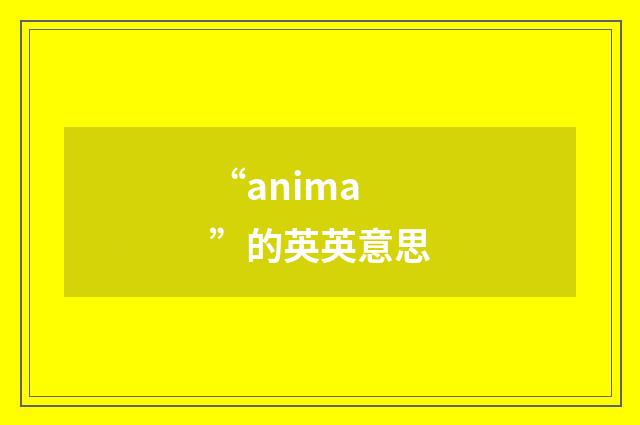| 单词 | anima |
| 释义 | anima Psychol.|ˈænɪmə|
[L., ‘mind, soul’.]
Jung's term for the inner part of the personality or character, as opposed to the persona or outer part; also, the feminine component of a male personality. Cf. animus 2.
1923H. G. Baynes tr. Jung's Psychol. Types xi. 593, I term the outer attitude, or outer character, the persona; the inner attitude I term the anima, or soul. Ibid. 595 If, therefore, we speak of the anima of a man, we must logically speak of the animus of a woman. 1926W. McDougall Outl. Abnormal Psychol. ix. 198 The Anima is not to be regarded as the whole of the Collective Unconscious; it is only a selection from it. 1943Horizon VIII. 262 A seductive mixture which fascinated the anima in Kierkegaard. 1962A. M. Dry Psychol. of Jung iv. 96 In women the phenomena corresponding to the moods of the anima-ridden man are ‘opinions’. 1962R. Manheim tr. J. Jacobi's Psychol. of C. G. Jung (ed. 6) iii. 112 Typical anima figures in literature are Helen of Troy.., Beatrice in the Divine Comedy, [etc.]. |

英语词典包含277258条英英释义在线翻译词条,基本涵盖了全部常用单词的英英翻译及用法,是英语学习的有利工具。
相关内容11:
相关热词搜索:anima英英词典英英释义英语词汇意思用法释义英语
